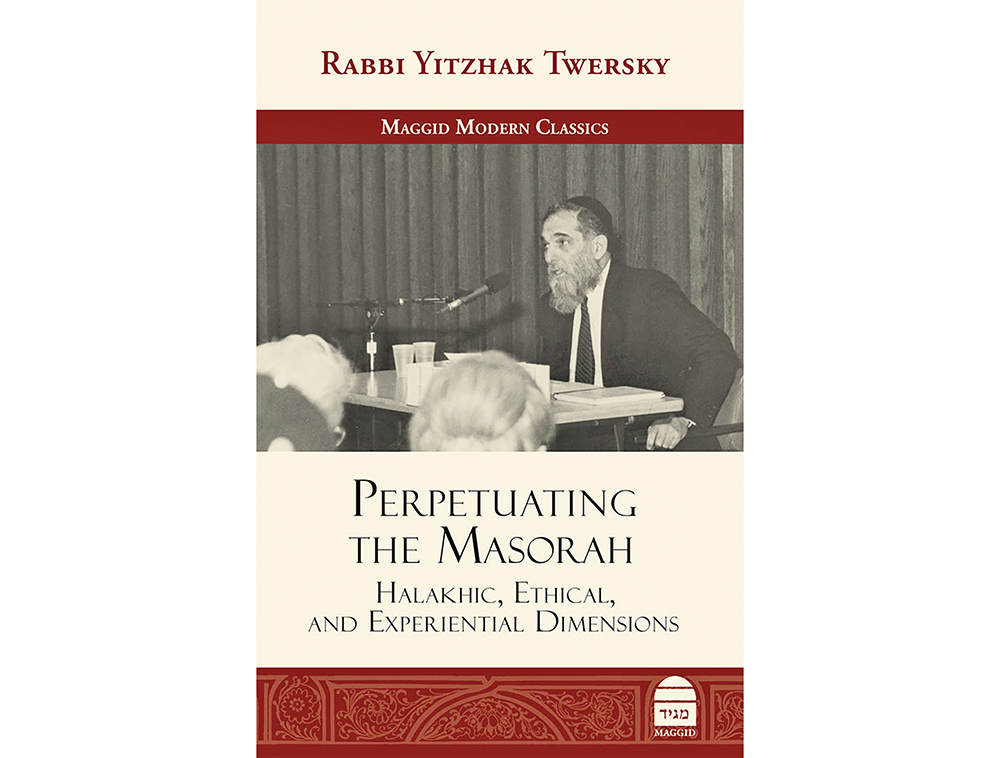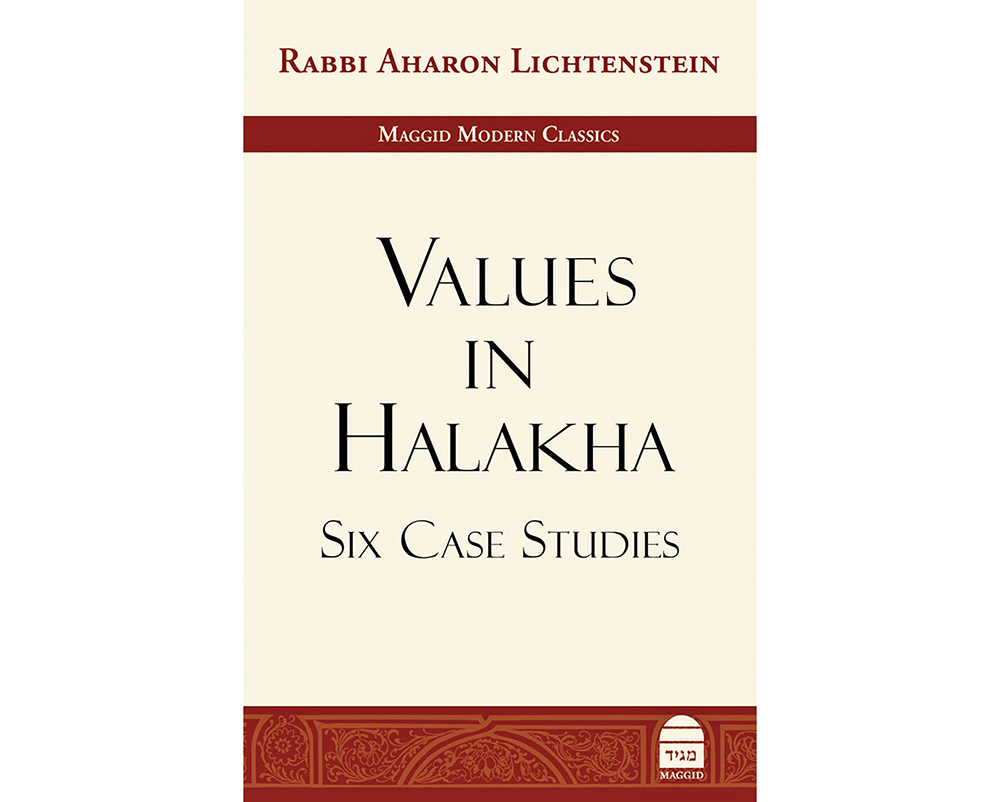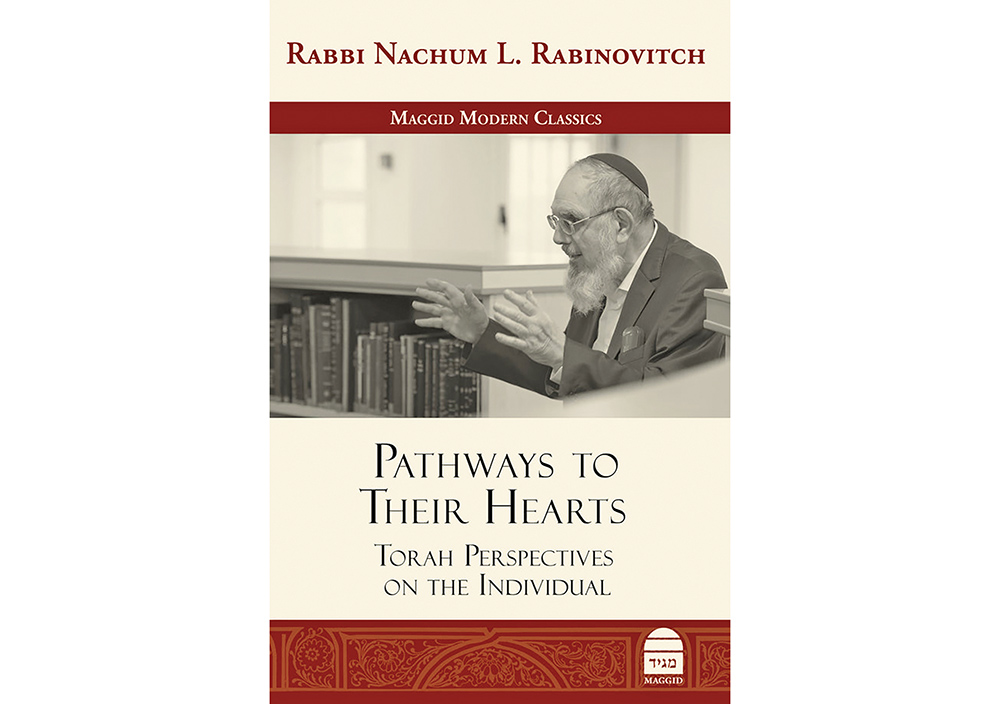
Highlighting: “Perpetuating the Masorah” by Rav Yitzhak Twersky. Maggid Books. 2023. English. Hardcover. 188 pages. ISBN-13: 978-1592646043.
“Values in Halakha” by Rav Aharon Lichtenstein. Maggid Books. 2023. English. Hardcover. 360 pages. ISBN-13: 978-1592646067.
“Pathways to Their Hearts” by Rav Nachum L. Rabinovitch. Maggid Books. 2023. English. Hardcover. 284 pages. ISBN-13: 978-1592645497.
One of the flagships series of Koren Publishers Jerusalem recently welcomed three new works by renowned Torah scholars Rabbi Aharon Lichtenstein, zt”l, Professor Rabbi Yitzhak Twersky, zt”l and Rabbi Nachum Rabinovitch, zt”l to its collection. According to Koren’s Editorial Director Rabbi Reuven Ziegler, the collection of 12 books, known as the Maggid Modern Classic series, brings to light the teachings of the great figures of Modern Orthodoxy and religious Zionism that he believes will still be read hundreds of years from now. The latest additions will allow a broad audience of English-speakers to access the teachings of these three great Jewish thinkers of the past century.
“Perpetuating the Masorah: Halakhic, Ethical and Experiential Dimensions” is a collection of five essays by Rabbi Twersky on aggadic, halakhic, ethical and spiritual themes. They all relate to the transmission and preservation of the written and oral law from generation to generation. Of the five essays, four are based on oral presentations that were edited and adapted for this work by two of his students, and include sections that were never printed until now.

Rabbi Twersky had multiple influences that provided the foundation for his scholarship, including the study of intellectual history, Hasidism and the teachings of the Rambam and of his father-in-law Rabbi Joseph B. Soloveitchik, the Rav. Many of his ideas were transmitted as scholarly articles that he penned during his career as a professor of Hebrew literature and philosophy at Harvard University and as founder of its Center for Jewish Studies. The essays that appear in this latest work, however, are far more accessible. Rabbi Ziegler explained that these essays were written as though Rabbi Twersky was delivering a shiur to congregants on Shabbat, rather than delivering a lecture to fellow academics, as much of his writing reflected.
“Pathways to Their Hearts: Torah Perspectives on the Individual” is a collection of the philosophical positions Rabbi Rabinovitch developed on matters relating to the life of the individual and the interaction between morality, reason and halakha. Among the subjects discussed are free will, the morality of the Torah’s commandments, the nature of halakhic decision-making and the difference between secular and religious ethics. As a posek or scholar who determines halakhic rulings, Rabbi Rabinovitch was very concerned that halakha should not be led by fear but by values. His vision for Judaism was based on Maimonidean principles, which comes across in every aspect of his writings. A professor of mathematics, Rabbi Rabinovitch also dealt with the relationship between science and Torah. In his writings he explained that there is no contradiction between the two disciplines.
“Values in Halakha: Six Case Studies” is a series of six essays of Rabbi Lichtenstein that he began writing, but never completed. A student of Rabbi Lichtenstein, Rabbi Zeigler edited this work and filled in the incomplete sections that his teacher never finished, sharing that “it’s an unbelievable privilege to bring his writings to the public.” In the footnotes, Rabbi Ziegler indicated where he made his own additions, which he based on conversations he had when Rabbi Lichtenstein was still alive. Rabbi Ziegler explains that of the three new classic books, this work is the most challenging to understand. Rabbi Ziegler’s editing included efforts to make the original essays more accessible by breaking up the paragraphs into shorter sentences and adding paragraph breaks, while still staying faithful to Rabbi Lichtenstein’s style.
The essays draw attention to the question of the value of Jewish law. Topics include Judaism and humanism, pursuit of self-interest, the concept of lifnim mishurat hadin (beyond the strict requirements of the law), and the responsibilities of the recipient of charity. Of his former teacher, Rabbi Ziegler shared that in addition to his brilliance, he was “such a deeply moral and spiritual person” and was always “mission-focused.”
Not only is their knowledge and understanding of Torah immeasurable, but according to Rabbi Ziegler, Rabbis Twersky, Rabinovitch and Lichtenstein deliver an important lesson in their teachings on the central role morality plays in Judaism. This is a valuable message that is useful in helping to navigate today’s complex challenges, including the permeation of materialism in society and the increased polarization, including within Orthodox communities. Rabbi Ziegler hopes that Koren’s publication of these materials will bring more audiences closer to the teachings of these leading figures, including individuals that have not had the opportunity, until now, to become acquainted with their works.

Already in production are the next five books that will be added to this series, which are works by Rabbi Shagar, Rabbi Abraham Isaac HaKohen Kook, Rabbi Eliezer Berkovits and another book by Rabbi Rabinovitch. “We are trying to make an impact on the Jewish world by bringing the best quality, voices and people who have something to say,” Rabbi Ziegler said. He invites all audiences from beginners to the most advanced students of Torah to become acquainted with this series and to find “a teacher” among the authors, whose words most resonate with them. “These authors are a cut above. You are getting something from the deepest wellsprings of Torah,” he added.
Alisa Bodner is a Fair Lawn native who immigrated to Israel a decade ago. She is a nonprofit management professional who enjoys writing in her free time.









